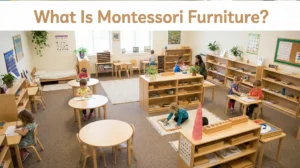When choosing a school for your child, one of the most important things to remember is that you are also choosing the teachers. Your child’s education is only as successful as the teachers are successful. Fortunately, with the right school and the right teachers, your child will be well on his or her way to a great education and a thriving future.
But how do you know if you’re choosing the right school? What do effective teachers do to help your child succeed? Here are several proven educational techniques you can expect from our Montessori educators:

A Holistic Approach
Maria Montessori dedicated her life to understanding how children develop in every area of their lives — mentally, physically and spiritually. Her discoveries led her to create a comprehensive, holistic approach to education that gives children many advantages over the fragmentary, disjointed approach that happens by default in many traditional school environments. A good Montessori educator appreciates and facilitates your child’s learning so that he or she develops not just factual knowledge but also life skills. It’s what we call the Montessori advantage — a proven educational model that promotes your child’s future success.
Self-Directed Studies that Drive a Thirst for Learning
According to Maria Montessori, “The greatest sign of success for a teacher . . . is to be able to say, ‘The children are now working as if I did not exist.’” This is a key element to look for as you consider the school your child will attend. The education your child receives should be tailored to his or her individual way of learning, taking advantage of how he or she learns best.
Montessori teachers provide opportunities for their students to choose their most natural path of learning and to advance at their own pace, through guidance and direction. This allows your child’s education to be individualized in a way that simply doesn’t happen in most traditional classrooms. Through self-regulation and a sense of independence, children develop a thirst for learning, resulting in pride that leads them to say, “I learned all by myself.”

A Spirit of Cooperation and Teamwork
Montessori education is typically accomplished in a multi-age classroom setting, where older students help mentor younger students, while the teacher gently supervises in a family-like setting. This approach fosters a community feel that traditional, one-size-fits-all classrooms do not. A Montessori school’s student-guided atmosphere promotes a sense of mutual respect among the students and appreciation of the differences in others. And because students are encouraged to coordinate their learning activities and their playtime with each other, they also learn how to effectively work together.
A Spirit of Cooperation and Teamwork
Montessori education is typically accomplished in a multi-age classroom setting, where older students help mentor younger students, while the teacher gently supervises in a family-like setting. This approach fosters a community feel that traditional, one-size-fits-all classrooms do not. A Montessori school’s student-guided atmosphere promotes a sense of mutual respect among the students and appreciation of the differences in others. And because students are encouraged to coordinate their learning activities and their playtime with each other, they also learn how to effectively work together.
Learning from Mistakes Is Positive and Encouraged
A Montessori teacher also allows students to become comfortable correcting their own work, without judgment. As children develop self-control and confidence, they learn to spot errors in their work. Children learn to use this habit of self-correction as a tool for success through their entire education and into adulthood.

Self-Discipline Becomes a Way of Life
The Montessori way of learning also helps children understand and value self-discipline. A teacher in a Montessori classroom helps students take the step from self-correction to self-discipline by guiding each student to establish ground rules for themselves that pave the way to learning. Consequently, each student begins to see the rules as a means for learning, which becomes more and more motivational as the child sees his or her own progress.
Education that Builds Character
An essential goal in the Montessori classroom is to provide an encouraging, safe space for children to develop the traits that will build character and inner strength. Montessori teachers model ethical behavior and values such as empathy, compassion and kindness. Children are taught to collaborate rather than compete. Individual differences are valued. The child’s relationship with others and with nature is emphasized. In this way, children can become productive, grounded, value-driven people who respect each other and take care of the world they inhabit.
Hands-On Experience and Practical Learning
Children and even adults learn best when they can practice something directly, with hands-on experience rather than just listening to a lecture or reading about it. Montessori teachers excel at guiding your child in hands-on learning opportunities that make the subject matter tangible, real and easier to grasp than anything learned by rote.














